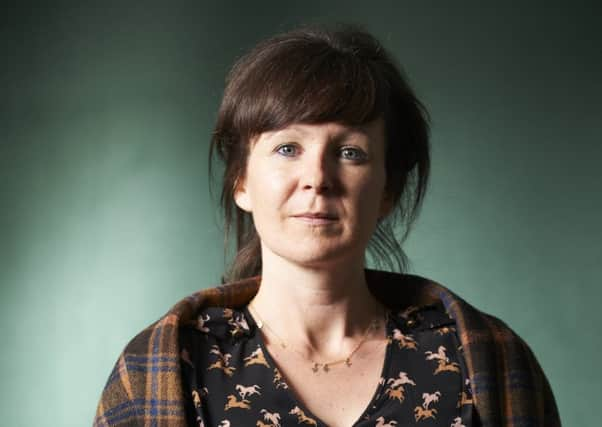Book review: Crudo, by Olivia Laing


It opens: “Kathy, by which I mean I, was getting married. Kathy, by which I mean I, had just got off the plane from New York. It was 19:45 on 13 May 2017”. This has the kind of rhythm and repetition I associate with Gertrude Stein. But the specificity is curious. On the same page we learn that “Kathy had written several books – Great Expectations, Blood And Guts In High School” – which clearly identifies this Kathy as the novelist, provocateur and punk experimentalist Kathy Acker. At the same time, it can’t be, given that Acker died in 1997. So what is going on?
Acker, as the first of the two titles mentioned shows, was subversive enough to take a canonical male writer and rework his material. This book does something similar – indeed, there are seven pages of footnotes showing where Laing has taken Acker’s own words and where she has lifted things from the London Review Of Books and the Twitter account of the current incumbent of the White House. It is justified in the novel itself, with at one point a character saying: “You take what you find, it’s all material, I mean what is art if it’s not plagiarizing the world?”
Advertisement
Hide AdAlthough there is much here derived from Acker’s own life, the “I” of the opening is someone else, a nameless narrator, sunbathing in Italy, preparing for her wedding, attending some ghastly literary shindigs and even more awful dinner parties. In a way it is wrong to think of the “I” and Acker as distinct characters. It is almost as if one has possessed the other in order to grant the kind of radical licence that Acker promoted. (After all, as quoted in the novel, this was a writer who said “the only thing I want is all-out war”).
And the “I” certainly does not hold back. Ali Smith has been working through a quartet of books attempting, and succeeding, to capture the contemporary. Crudo almost rushes past the present. I can’t quite imagine how the novel was constructed, given the lead-times in publishing, and yet it manages to include Jacob Rees-Mogg, the Leave Campaign, Trump, Guardian editorials and, in another Stein like sentence, “smiling men policing women’s bodies, smiling men deporting immigrants, smiling men telling smiling lies on daytime television”.
Worthy though this all is, I was reminded of the late Angus Calder’s comment – “if you’re that concerned, write a letter to the newspaper, not a novel”.
The title gives some indication of all this. “Crudo” means raw in Italian, but it has a connotative as well as a denotative meaning – it can refer to the uncooked, but also to the raw as in “raw anger” or as in our phrase “harsh reality”. It is also Mexican slang for being terribly hungover, which is appropriate given the amount of drinking in the book. Laing is also the author of The Trip To Echo Spring, a marvellous account of authors and alcoholism. The addictions in the novel are not limited to drink and drugs, and include social media – our “I” character is never off her phone.
But is it, in the end, a novel? I would have been more delighted to read a non-fiction book by Laing on Acker and her influence, especially in the age of Pussy Riot and the pussy-grabbing POTUS. It does, by disrupting temporal order and even the intact nature of the self, attempt something brave. There is a consistent and radical contradiction in how emotions are described. But the sad point about literary experiments is that, like scientific experiments, they sometimes fail. The attempts at humour here left me utterly cold. It always felt like laughing at, not laughing with. Moreover, the liberal smugness of the opinions seems very, very far from Acker’s own fury. “Pain is the world” as she wrote, and this is quoted at the end of the novel. If one wanted a fictional depiction of Acker, then I would recommend Neil Gaiman’s graphic novel Sandman, where there is a homage to her – she was a friend of his – as the goddess Delirium. It captures her anger and melancholy, especially given she was once known as Delight.
Early on in the novel, Laing writes “Human relations, how.” That seems to encapsulate this book’s strange mixture of the blurted and the withdrawn. On the same page it says, “She felt blank. She felt blank and mildly hysterical, she was itching to do something but it wasn’t clear what.”
I rather felt this summarised the book. Others may adore it. Others may think it is just not their cup of tea. For me, it wasn’t even a Pouilly Fumé.
Crudo, by Olivia Laing, Picador, 12.99